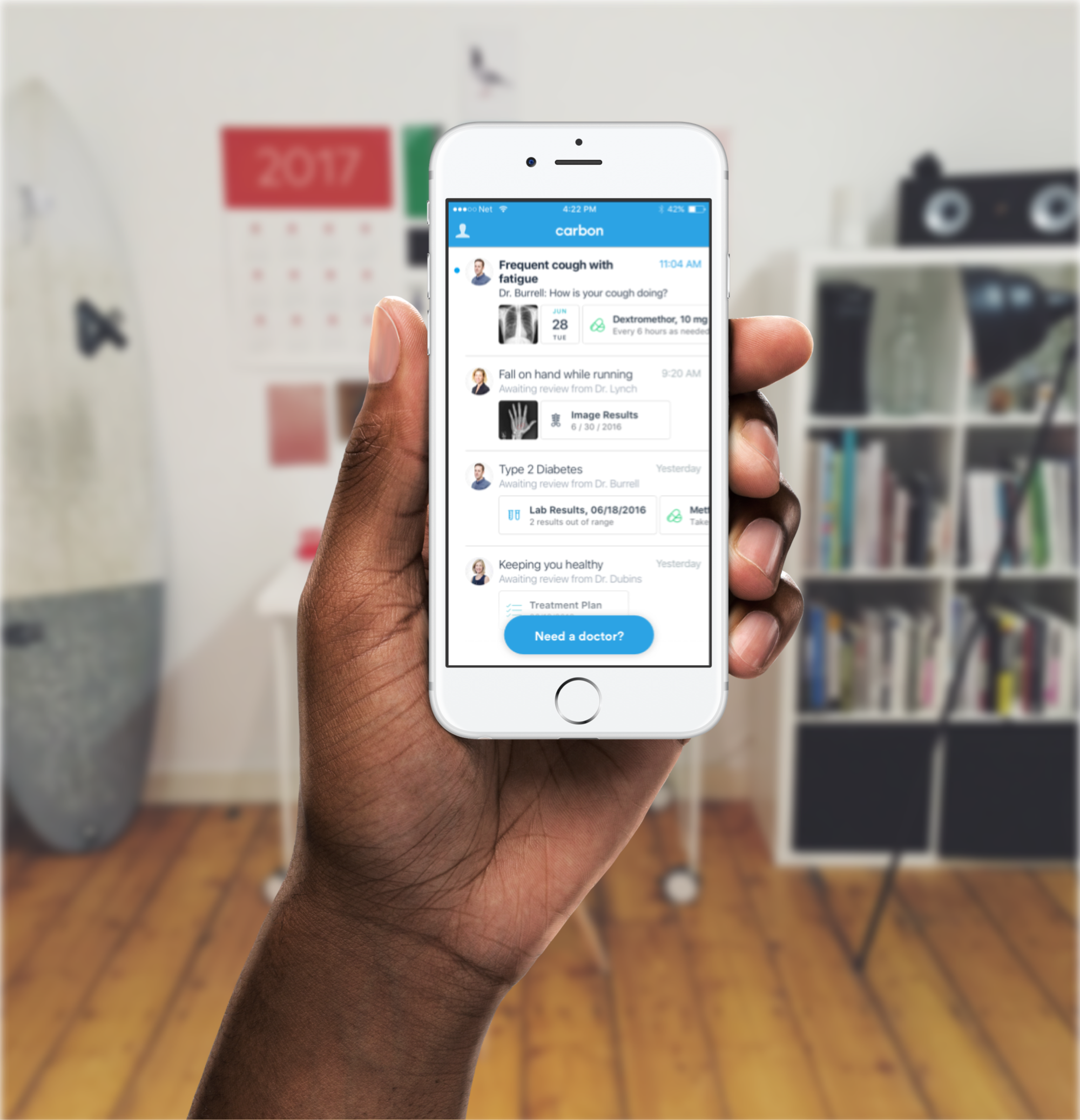
Carbon Health quickly expanded in the last year, in spite of the pandemic. The San Francisco-based startups has more than tripled the number of primary care and urgent care clinics it operates across the U.S., and plans to grow both its brick-and-mortar and virtual footprints further with $100 million in new funding.
Dragoneer Investment Group led the series C round, with participation from existing investors Brookfield Technology Partners, DCVC, and Builders VC.
“We are excited to partner with Carbon as they expand their footprint, bringing their differentiated approach to primary care to a national scale,” Eric Jones, a partner at Dragoneer Investment Group, said in a news release.
Last year, Carbon Health had seven clinics in the Bay Area, after merging Founder and CEO Eren Bali’s mobile health platform with Direct Urgent Care network.
Now, it operates 27 clinics across six states. Some of its locations include co-branded clinics operated in partnership with local health systems. It takes insurance from most major providers, except for Kaiser.
It’s taking on established competitors One Medical and Forward, with the ambitious goal of opening 1,500 clinics by 2025. Carbon Health said it would emphasize healthcare deserts in this effort.

A Deep-dive Into Specialty Pharma
A specialty drug is a class of prescription medications used to treat complex, chronic or rare medical conditions. Although this classification was originally intended to define the treatment of rare, also termed “orphan” diseases, affecting fewer than 200,000 people in the US, more recently, specialty drugs have emerged as the cornerstone of treatment for chronic and complex diseases such as cancer, autoimmune conditions, diabetes, hepatitis C, and HIV/AIDS.
“A striking one in five counties in the United States is a healthcare desert, and this year the Covid-19 pandemic exposed the profound effects of these disparities and weaknesses in our healthcare system,” Bali said in a news release. “Our mission is to solve these problems — and with help from this investment, we can accelerate our plans to deliver accessible preventative and chronic illness care to close the healthcare gap in this country.”
Many patients turned to telehealth visits after the start of the Covid-19 pandemic. Carbon Health, which offered virtual visits in California, now offers them in 16 states. In addition to booking a telehealth appointment or viewing their health record, for some conditions, patients can message their provider through the company’s app.
In total, the startup said it seen a sixfold increase in patient volume year-over-year.
The pandemic also resulted in Carbon Health opening pop-up testing sites, which it said could serve as access points for primary care in the future. By the end of winter, it plans to open 100 pop-up clinics across 20 markets. Like many companies, it has also developed a workforce safety program for employers.
In the future, Carbon Health plans to build out specialty programs for managing chronic illnesses and women’s health. It has already developed a program for patients who test positive for Covid-19, including mental health screenings, symptom tracking and ongoing monitoring.
Photo credit: Carbon Health












